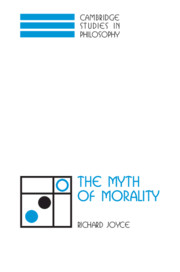7 - Fictionalism
Published online by Cambridge University Press: 22 September 2009
Summary
IF THERE'S NOTHING THAT WE OUGHT TO DO, THEN WHAT OUGHT WE TO DO?
Let us suppose that the main conclusion of the previous chapters is correct: moral discourse consists largely of untrue assertions. Those arguments have primarily targeted deontological notions like obligation and prohibition. One might object that even if these arguments were faultless, all they show is that a certain proper subset of our moral discourse is flawed, but there is a rich and robust moral language that remains untouched. However, it is my contention that moral concepts are to a large degree holistically connected, such that a persuasive attack on categorical imperatives will, one way or another, count as a persuasive attack on a great deal more besides.
If there are no inescapable moral obligations, for instance, then there will be no inviolable claim rights (and claim rights are the central currency of ordinary rights-based moral discourse). Similarly, talk of virtues and vices generally implies the existence of obligations. Virtues are often thought of as character traits that one is obligated to cultivate. Or even if not that, a virtuous agent is taken to be one who is, inter alia, sensitive to, and acts in accordance with, her moral obligations. There may be accounts of the virtues that have neither of these implications, but that very fact indicates how distant they are from the notions as they are employed in common moral parlance.
Consider, thirdly, the idea of a morally good state of affairs.
Information
- Type
- Chapter
- Information
- The Myth of Morality , pp. 175 - 205Publisher: Cambridge University PressPrint publication year: 2001
